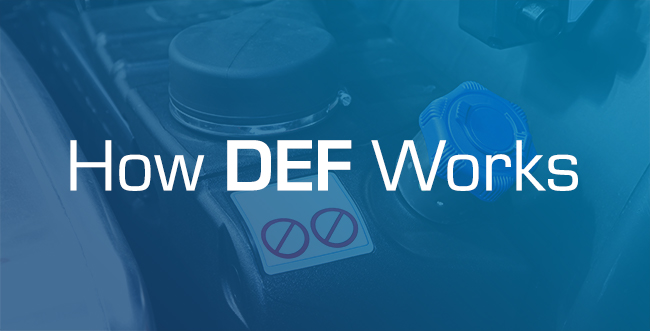Dive into the Analytics Lab API Explorer
Developers can save time with preformulated code.
By Geotab Team
Jun 14, 2021
Updated: May 29, 2025

“API,” or “Application Programming Interface,” is a software interface that allows interaction between multiple software applications. Each time you use an application like LinkedIn or Twitter, send an instant message, or check weather on your mobile device, you are actually using an API.
In the daily work of software developers, APIs provide the perfect mode of communication between the data and the result. APIs list a number of parameters and operations that a developer can use, along with sample requests and responses.
Introducing the API Explorer for the Analytics Lab Add-In
Geotab is committed to developing brand new ways for businesses to continuously benefit from a data-driven environment, and with the help of actionable insights. To help align with these goals, we have introduced the API Explorer application in our Analytics Lab Add-In, available in Marketplace and is absolutely free!
With preformulated code, Geotab has taken care of the time-consuming part. You can customize the default settings based on your needs to get the data insights with less lead time.
What is the API Explorer?
API Explorer is an application that hosts numerous APIs for a range of use cases. As a platform that is both part of and working in conjunction with the Analytics Lab Add-In, it allows users to access pre-formulated codes for use cases like intelligent zones, collision events, service centers and many more.
Coding from scratch can be troublesome and time consuming. Using the API Explorer application will help you to explore Geotab’s catalog of Beta APIs providing insights into what is being built, along with the types of data requests that are made. The application provides a user-friendly interface to send and receive data responses via a range of available APIs.
.png)
The API explorer application UI showing getCollisionEvents API.
How does the API Explorer work?
The API Explorer application leverages telematics data from Geotab-connected vehicles, and is driven by intelligent data analytics.
The application runs the API endpoints, along with request parameters, in the backend. Then, the user interface (UI) efficiently and accurately displays all the results the API calls. It also provides essential endpoints through the URL for any users who are interested in referencing or customizing the pre-formulated codes for their specific use cases.
.png)
Figure 1. Sample request body from Geotab’s getContextualRiskBenchmarks API available in Analytics Lab.
Do you need special training to use the API Explorer?
The API Explorer is built on pre-formulated code. Developers need to know how to customize the code to fit it to their needs, but no specific coding language expertise is required. All you need to know are the basics of programming.
Available APIs and their use cases
Developers and fleet managers can take advantage of a range of Geotab APIs, to save time in coding from scratch, and make business decisions using a data-driven approach.
Here are the APIs currently available:
1. Intelligent Zones APIs
getNewZones — This API provides new zones created by our Intelligent Zoning experiment in the Analytics Lab Add-In.
updateZoningConfiguration — Helps to update the configuration dataset for the Intelligent Zoning pipeline.
2. Collision Detection API
getCollisionEvents — This API enables you to track and act on potential collisions that were detected in your vehicles by analyzing the accelerometer data. This is the base API used in our Collision Detection experiment in Analytics Lab Add-In.
3. Contextual Risk Index APIs
getContextualRisk — Use this API to get vehicle-level, monthly-summarized variables on contextual risk. This includes variables on vehicle utilization, harsh event rates, and utilization under specific conditions, such as precipitation.
getContextualRiskBenchmarks — Can be used to get monthly-summarized state/country benchmarks on contextual risk, for specified vehicle type and vocation.
4. Service Centre Events API
getServiceEvents — This API enables you to view insights on all Service Events, such as engine oil check, detected using vehicle engine status status data.
5. Other useful APIs
getAverageSpeeds — Can be used to get average speeds for selected OpenStreetMap (OSM) IDs.
getNearbyFuelStations — Can be used to find nearby fuel stations, from a given location (latitude and longitude).
getNearbyRestAreas — Can be used to get the top 10 nearby rest areas within 50 kilometers of a given location (latitude and longitude).
getOSMIDs — Can be used to get a list of OSM IDs that are within five kilometers of a provided latitude and longitude.
getFuelBenchmarking
See also: Improve how your fleet runs with the Analytics Lab
How to learn more
Start exploring today. Here’s how to get started:
- Discover the API Explorer and other Analytics Lab experiments by installing the MyGeotab Add-In from the Marketplace.
- Review our API Explorer User Guide for more information.
Get involved!
Come, be a part of our Analytics Lab Community group. This is an open platform where you can ask questions, learn more about Geotab data solutions like API Explorer, find out what’s coming next, and also connect with our Data team and fellow Analytics Lab Add-In users.
See what’s happening in the Analytics Lab Community, and join the group today.
There are even more ways to connect. If you have a new idea for a data experiment, please contact us. As well, submit your feedback using the Analytics Lab Feedback form. We welcome input from any MyGeotab users.
Subscribe to get industry tips and insights
The Geotab Team write about company news.
Table of Contents
Subscribe to get industry tips and insights
Related posts

What is DEF? How diesel exhaust fluid works and why it's essential for fleets
July 16, 2025
5 minute read

Creating a fleet safety culture that’s built to last: Lessons from Missouri DOT and NYC
July 7, 2025
8 minute read

Field service is losing money to bad data: Go beyond GPS with smarter telematics
June 27, 2025
3 minute read


Enhancing winter road maintenance with postseason materials usage analyses
June 20, 2025
6 minute read

Building a self-sustaining school bus driver safety program with Geotab Vitality
June 13, 2025
7 minute read